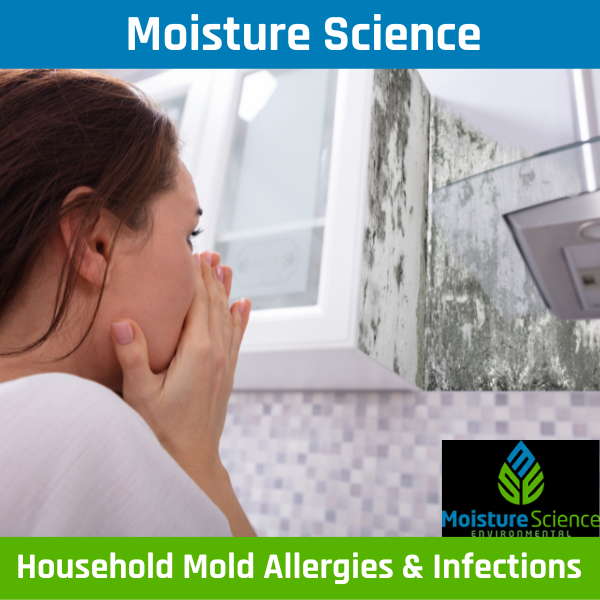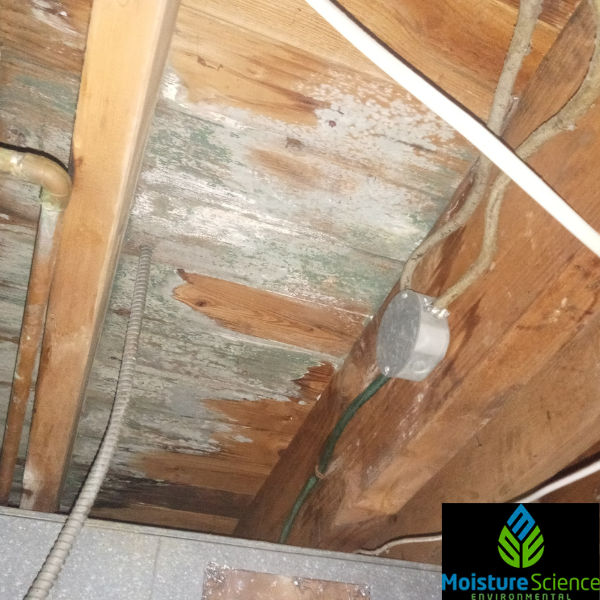Whenever I walk into a new client’s house to perform a mold inspection, I have a list of questions to ask to help understand the impact mold might be having on the residents of the home.
I ask is if there is anyone in the home that is under 6 years old, over 65 years old, has asthma or COPD, is allergic to penicillin or has a diagnosed history of mold allergy. If the answer to any of these questions is yes, then I have to be hyper-aware because these specific health profiles are more sensitive to mold contamination.
Contact a Household Mold Expert
Who Is Most Prone Mold Infections?
Under 6 Years Old
The first group is those in the under 6 years old category. Children under 6 years old do not have a 100% fully functioning immune system. Infants for instance have very little protection from most pathogens for several months. As an infant moves into the toddler and eventually childhood years, the immune system slowly matures. Until around 7 years of age, a child is more susceptible to certain fungus (mold) infections.
Over 65 Years Old
As with many bodily systems, the immune system then goes into a steady state of decline after 65 years of age. Most influenza deaths are attributed to this age group. So it’s important to know the age of the occupants of the home.
Pre-existing Conditions (such as Asthma or COPD)
The next group of occupants are those with pre-existing conditions which make them more susceptible to mold infections than the general population. Having asthma or COPD makes a person particularly susceptible to worse outcomes when dealing with mold. Elevated exposure to mold spores in the home is the #1 cause of emergency room visits each year for those with asthma. This is also the cause of the increased use of emergency inhalers and oxygen administration. Having COPD has very similar outcomes to those with asthma. Of course, the average person with COPD is typically over 65 years old and so there is a second risk factor for this particular group.
Those with a previous history of covid. Studies are now being done to determine if there is an elevated risk factor for persons who have had covid and also have elevated exposure to mold spores. While more studies are needed, the initial reports are that having had covid and being exposed to elevated mold spores significantly adds to the overall risk factors.
Mold Allergy
The final group is composed of people that have already been diagnosed as being allergic to mold spores. Approximately 10% of the population is allergic to mold.
Learn more about who is affected by mold growth.
Unfinished Basements Mold Growth
If you are in an unfinished basement, you will likely be looking at LOTS of wood framing (floor joists, subfloor etc). Many people use the basement to store excess furniture or have a finished basement that is filled with furniture composed mostly of wood. That is the most common area to find Aspergillus/Penicillium growing. Aspergillus loves exposed wood surfaces when the relative humidity is above 60%.
If you have an LED flashlight you may be able to see what looks like small white fuzzy dots closely grouped together. As a basement mold inspector, and an expert with a degree in Microbiology, I get a lot of questions that I answer for my clients. New Jersey and Philadelphia homeowners with a basement can learn more about my frequently asked questions about basement mold.
What Is a Penicillin Allergy?
A penicillin allergy will predispose you to exposure to one of the most common indoor mold species and that’s Aspergillus/Penicillium. Aspergillus/Penicillium is a light-colored, almost white fungus that grows most commonly on wood. This includes furniture, framing, trim, and subfloors.
If you believe you see this mold growth in your home then please contact a mold inspector to verify. Do-it-yourself cleaning may spread the spores, or not remediate the underlying cause. As a qualified mold professional in New Jersey and Philadelphia, Moisture Science will assist.
The Difference Between Mold Allergy and Sinusitis?
In the majority of cases, the person will experience mold allergy as sinusitis. Sinusitis is the inflammation of the lining of the nasal cavity which results in swollen glands and excess mucus production. For many, it takes numerous sinusitis attacks before they go to an allergy specialist and get diagnosed with mold allergy.
Some folks will never find out and may go their entire life having chronic sinus infections and not knowing it was a preventable disease. This is why it is vitally important to know who is living in a particular home so we can figure out why some folks may be having adverse health symptoms.
I am not an allergy specialist, I am an experienced mold specialist. Please consult your medical doctors for diagnosing a potential allergy or sinus issue. As a mold inspection company, I can do my due diligence to help you identify and resolve a possible cause, but I can’t tell if you are allergic based on your symptoms.
Mold Inspector in New Jersey and Philadelphia, PA
If you are at higher risk for mold allergies, it might be worthwhile to consult with a mold specialist such a Moisture Science Environmental. What separates me from my competitors is my education and deep understanding of mold. With a degree in Microbiology, it is important to me to educate my clients and let them make informed decisions. I would easily turn away a potential job if I truly believed the issue was harmless. Contact me to learn more about my mold inspector services.




